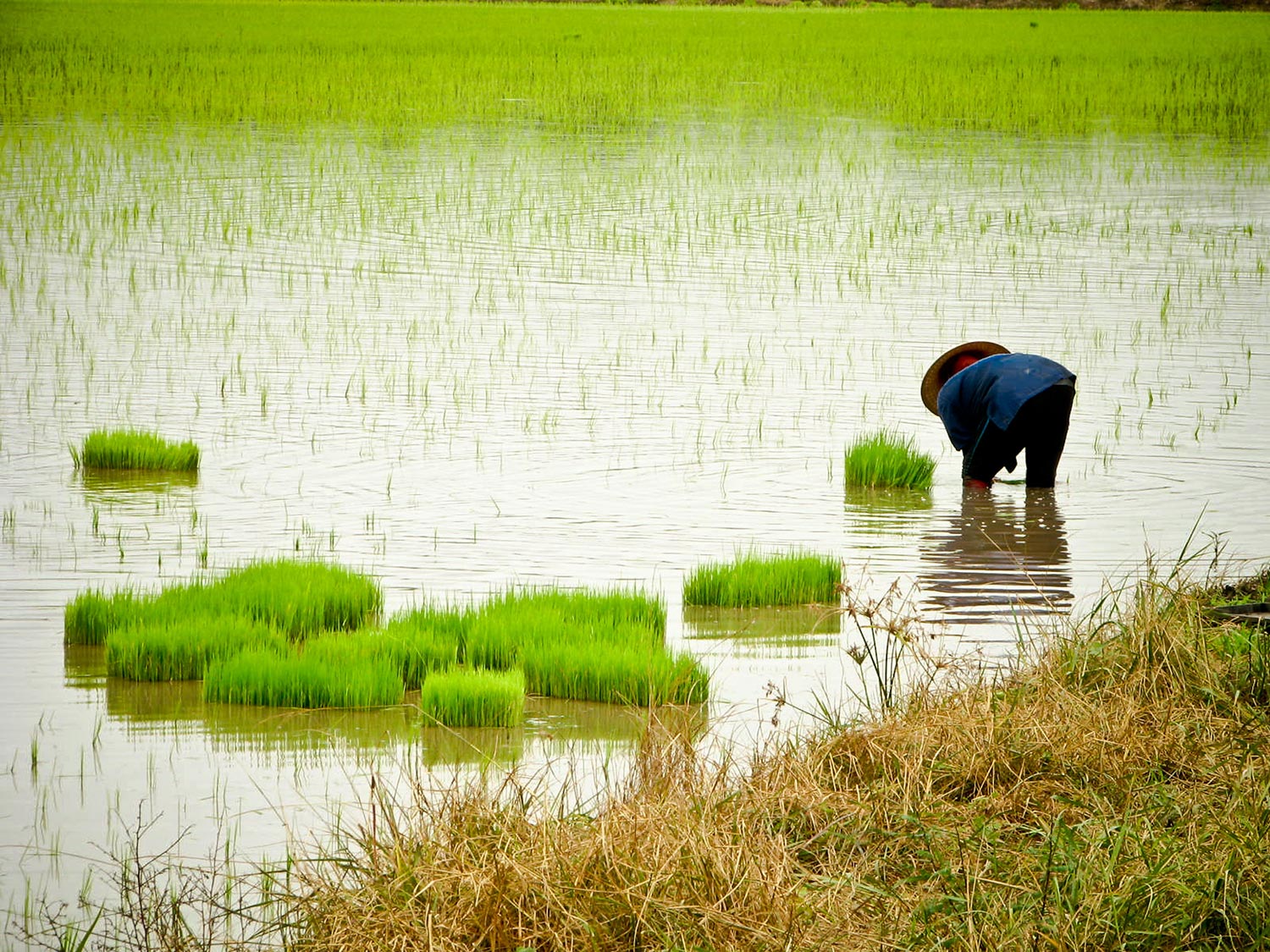Collective Action for a Sustainable Future: Working Together to Transform Asian Mega-Deltas

For thousands of years, hundreds of millions of people have lived their lives and earned their living within Asia’s mega-deltas, global food baskets rich in fertile land, natural resources, and biodiversity. However, intensifying climate change and human-induced modification have been creating severe challenges for the region, with local communities now suffering from salinization, sea-level rise, floods, storms, and coastal inundation, resulting in millions of hectares of affected agricultural land as well as declining fish populations.
During the Gobeshona Global Conference on Locally-Led Adaptation last January 2021, one of the key sessions was a webinar on the social and economic threats faced by people living in mega-deltas, particularly in South and Southeast Asia. Experts and hundreds of stakeholders from across the planet gathered virtually to discuss the opportunities and challenges of working towards more resilient and sustainable deltas in the face of a range of threats, all magnified by global climate change.
Led by various international research consortia and organizations, the webinar session entitled “An Asian Mega-Delta Collective for Sustainable Delta Futures” explored the similarities and differences between ‘top-down’ and ‘bottom-up’ approaches to delta governance in the region, and ways to bridge gaps. The intended outcome was to develop and foster new, equitable, and innovative partnerships towards better delta futures in the region.
A focus point in the discussion was the promotion of locally-led delta community adaptation and co-creation of knowledge between sectors of society. By highlighting the priorities of local stakeholder groups from different deltas and finding ways to ensure that their voices are heard, this would encourage much more meaningful involvement in the development of sustainable delta policy than has traditionally been the case.
Dr. Andy Large, Professor of River Science in Newcastle University, is the Director of the Living Deltas Hub, a research group supported by UK Research & Innovation (UKRI), the Global Challenges Research Fund (GCRF), and other partners. Dr. Large gave an overview of the group’s work, implemented through a research agenda that blends the natural sciences with social sciences, arts, and humanities. He explained how managed adaptive approaches can be more effective for Asian mega-delta futures, and that equitable partnerships with the delta dwellers and decision-makers at the onset are key to achieve better long-term policies. He emphasizes that working with the people in the region will be critical for co-creating sustainable projects, and that greater understanding of their challenges and priorities can lead to more resilience-oriented solutions and outcomes.
Dr. Bjoern Ole Sander, Vietnam Country Representative and Climate Change focal point for the International Rice Research Institute (IRRI), introduced the Two Degree Initiative (2DI), a key program of the CGIAR Climate Change, Agriculture, and Food Security (CCAFS). The focus was on the sub-program “Securing Asian Mega-Deltas”, which is coordinated through CGIAR centers IRRI, Worldfish, and International Water Management Institute (IWMI). Concentrating on the Mekong, Ganges, and Irrawaddy deltas, 168 delta dwellers and stakeholders were engaged and consulted on their needs and priorities in order to co-create a joint vision of the research agenda targeting 2030. The framework developed for connecting all the regional priorities include increasing access to climate-smart innovations, enhancing climate-informed information and services, and supporting policy and reforms for transformational change, with cross-cutting themes on empowering farmers and marginalized groups, low emission supply chains, and leveraging finance for climate action.
Dr. Matthew McCartney, International Water Management Institute (IWMI) Research Group Leader for Sustainable Water Infrastructure & Ecosystems, also emphasized the need to engage at the onset with the stakeholders on the ground, as these people will be the most affected by the change drivers, and the solutions that will be proposed will be the most relevant for them. He presented a 5-minute short film where delta dwellers were asked what was good about living in the deltas, and what are the challenges. Abundance of fish and agricultural diversity were the positives, while underdeveloped road/communication systems and uncertainty about money and food were the challenges pointed out.
Michiko Katagami, Asian Development Bank (ADB) Principal Agriculture and Natural Resource Specialist, shared that the bank considers climate investment as fundamental for their 2030 goals, with a committed investment of USD 80 billion over 11 years in developing countries. Projects in the delta regions include adaptation and mitigation funds for agriculture and natural resources sectors, with irrigation facilities, flood control and riverbank erosion risk management programs, and small-scale water resources management programs as the main initiatives. A highlight program is a digital solution piloted in India and Pakistan, and now being rolled out in Bangladesh, where extreme weather and irrigation advisories are sent as text messages to rural farmers. It demonstrated how information dissemination can by itself increase climate resilience, as a decision to change sowing dates can greatly affect yields.
Two breakout sessions were formed. Breakout 1 discussed the priorities of delta dwellers, while Breakout 2 talked about the priorities for policymakers. Key takeaways for Breakout 1 was that delta dwellers should have a say in the opportunities they will have for livelihood resilience, and that understanding their cultural heritage and indigenous knowledge will be important in achieving that. Takeaways for Breakout 2 were that generating the right evidence is key to improving policy and attracting partnerships, and prioritizing generational learning will help ensure youth participation and interest in policy making.
In the plenary session, a Global Solidarity Network was proposed, providing a platform for delta dwellers around the world to get information, share success stories and challenges, and to collaborate on ideas and initiatives. Other stakeholders like development organizations will sustain the platform, providing knowledge, best practices, and innovations supporting the needs and priorities of the delta dwellers.